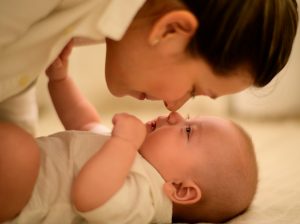Sodium valproate compensation
On 7 February 2024, Dr Henrietta Hughes published the Hughes Report, exploring options to redress those victims harmed by the drug sodium valproate. The report brings to the forefront a long battle to compensate victims for serious harms following complications from the drug.
What is sodium valproate?
Sodium valproate is a drug primarily used to treat epilepsy, as well as other medical conditions such as bipolar and migraines. Commercially, it is known as Epilim 500.
Problems can occur, however, when pregnant women are prescribed the drug. Medical evidence shows that a foetus exposed to the drug has a 40% greater risk of incurring serious harmful impacts. These impacts include a wide range of physical and mental anomalies such as bodily deformities, learning disabilities and severe forms of autism.
The World Health Organisation recognises “Foetal Valproate Spectrum Disorder”, stemming from exposure to sodium valproate in the womb, in its International Classification of Diseases.
Who was harmed?

Taylor Hampton assists victims of sodium valproate harm
It is estimated around 20,000 mothers have been impacted by sodium valproate.
Many of these women argue they were not alerted to the risks of taking the medication. Additionally, this is despite findings demonstrating that these risks were known to regulators since 1973. Early trials on animals showed that the drug could cause teratogenic effects, and these outcomes had the potential to be replicated in humans. However, the Committee on Safety Medicines dismissed this evidence. Benefits of the drug were deemed to outweigh its side effects. Informing women of possible risks might cause unnecessary anxiety, and warnings of impacts on foetal development were removed from packaging. Many, including the former health secretary Jeremy Hunt, liken this cover-up to another, more high-profile scandal concerning the drug thalidomide.
As a result, families were not sufficiently (if at all) informed of the extreme congenital impacts to children from the drug. Consequently, due to a number of severe impacts which the drug has caused, many of these children require full time care, placing an enormous mental and financial burden on families.
How can people seek compensation?
It is important people are compensated for the harm suffered and continue to suffer. Campaign groups have brought a number of law suits to hold bodies accountable. None have these have resulted in actual redress for victims.
In recent years, there have been warnings and several attempts to raise awareness of the possible harmful impacts of the drug. In 2018, the NHS established a prevention plan. Two years later, an independent review titled “First Do No Harm” called for the creation of a compensation scheme. A similar scheme already exists in France, and a class-action lawsuit against the drug supplier Sanofi is ongoing.
Now, the recent Hughes Report offers a fresh opportunity to compensate families. The report pushes for a governmental compensation scheme to support families impacted by the drug. Specifically, it recommends compensation consisting of an initial payment of £100,000.
The government is yet to respond to the report.
Conclusion
To summarise, valproate remains a crucial drug to treat epilepsy. In some circumstances, it is the only effective treatment. But its harmful impacts on new born children can be extreme. Campaigners want medical practitioners to ensure patients are sufficiently warned of the risks involved, and that those already living with the effects are compensated for the harms suffered. Thankfully, this report offers fresh hope to such victims in their longstanding battle to raise awareness of the negative impacts of the drug.
Take Action:
Therefore, if you or your family have been affected by sodium valproate and its interactions and side effects and would like to discuss the impact with one of our practitioners, please contact [email protected] or call 0207 427 5970 and see our announcement HERE.
